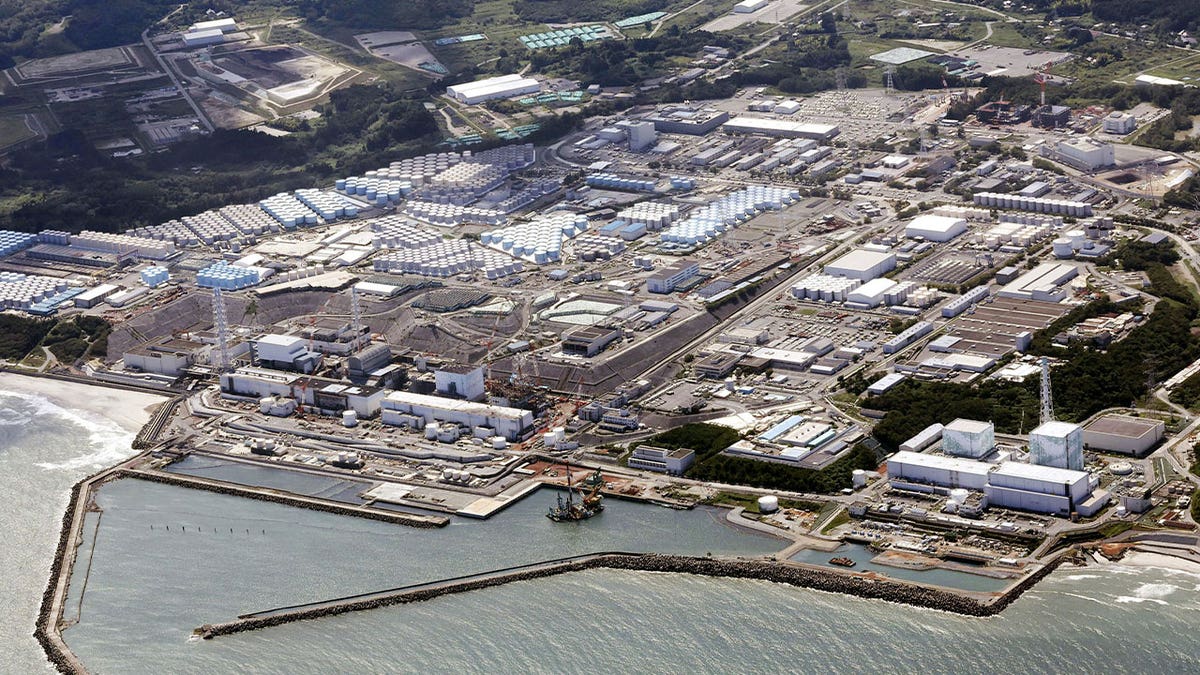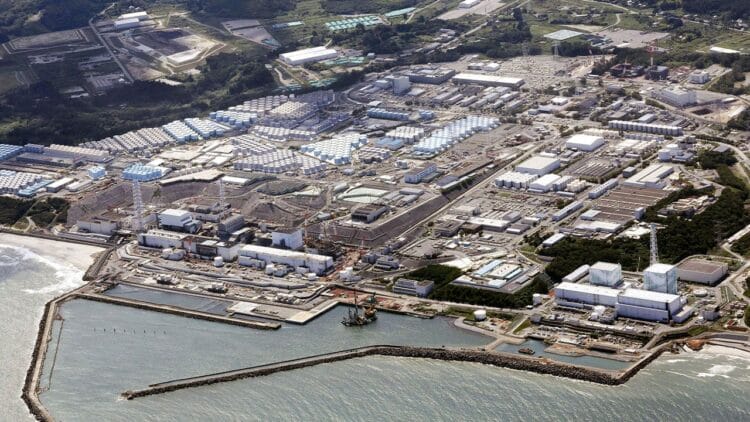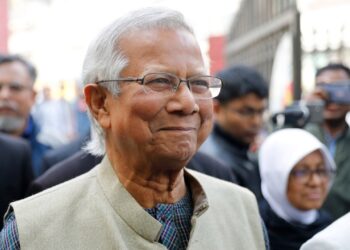- Nearly two months ago, Japan began releasing treated radioactive wastewater into the ocean from the tsunami-wrecked Fukushima Daiichi nuclear power plant.
- China immediately banned all of Japan’s seafood in response to the Fukushima wastewater release.
- Russia is also planning to implement a ban on Japanese imports Monday, further hurting Japan’s seafood producers and exporters.
Japan criticized Russia’s announcement that it’s joining China in banning the imports of Japanese seafood in response to the release of treated radioactive wastewater from the wrecked Fukushima nuclear power plant.
Russia said it will start implementing import restrictions on Japanese seafood on Monday, nearly two months after the tsunami-wrecked Fukushima Daiichi nuclear power plant started releasing treated and diluted radioactive wastewater into the ocean.
The wastewater discharges, which are expected to continue for decades, have been strongly opposed by fishing groups and neighboring countries including South Korea, where hundreds of people have protested. China immediately banned all imports of Japanese seafood the day the release began in August, badly hurting Japanese seafood producers and exporters.
JAPAN VOWS TO SUPPORT FISHERIES DURING COUNTRY’S DECADES-LONG PROCESS OF RELEASING FUKUSHIMA NUCLEAR WASTE
The Japanese Foreign Ministry said its senior officials notified the Russian Embassy in Tokyo that Japan has been providing transparent and scientific explanations about safety of the treated water release from the Fukushima plant and Japanese seafood. The ministry also said the Japanese side “sincerely and politely” responded to Russia’s abrupt request for a dialogue last week on the issue by submitting documents.
The ministry called Moscow’s restrictions “unjust” and said they go counter to the global move toward easing or lifting of import restrictions on Japanese food.

The Fukushima Daiichi nuclear power plant is seen in Fukushima, northern Japan, on Aug. 24, 2023. (Kyodo News via AP, File)
“The decision by the Russian side is extremely regrettable, and we strongly demand its withdrawal,” the ministry said. “Japan continues to seek actions based on science.”
The plant’s first wastewater release began Aug. 24 and ended Sept. 11. During that release, TEPCO said it discharged 7,800 tons of treated water from 10 tanks. In the second discharge that began Oct. 5, TEPCO plans to release another 7,800 tons of treated water into the Pacific Ocean over 17 days.
The International Atomic Energy Agency has reviewed the safety of the wastewater release and concluded that if carried out as planned, it would have a negligible impact on the environment, marine life and human health.
FUKUSHIMA WASTEWATER HAS BEEN RELEASED, BUT OTHER CHALLENGES, LIKE REMOVING MELTED NUCLEAR FUEL, REMAIN
A team of IAEA experts from China, South Korea and Canada is set to conduct sampling of seawater and marine life at and near the plant this week.
Japan’s government has set up a relief fund to help find new markets and reduce the impact of China’s seafood ban. Measures also include the temporary purchase, freezing and storage of seafood and promotion of seafood sales at home.
CLICK HERE TO GET THE FOX NEWS APP
TEPCO and the government say discharging the water into the sea is unavoidable because the tanks will reach capacity early next year and space at the plant will be needed for its decommissioning, which is expected to take decades.
They say the water is treated to reduce radioactive materials to safe levels, and then is diluted with seawater by hundreds of times to make it much safer than international standards.
(this story has not been edited by TSA Mag staff and is published from a syndicated feed.)
- Nearly two months ago, Japan began releasing treated radioactive wastewater into the ocean from the tsunami-wrecked Fukushima Daiichi nuclear power plant.
- China immediately banned all of Japan’s seafood in response to the Fukushima wastewater release.
- Russia is also planning to implement a ban on Japanese imports Monday, further hurting Japan’s seafood producers and exporters.
Japan criticized Russia’s announcement that it’s joining China in banning the imports of Japanese seafood in response to the release of treated radioactive wastewater from the wrecked Fukushima nuclear power plant.
Russia said it will start implementing import restrictions on Japanese seafood on Monday, nearly two months after the tsunami-wrecked Fukushima Daiichi nuclear power plant started releasing treated and diluted radioactive wastewater into the ocean.
The wastewater discharges, which are expected to continue for decades, have been strongly opposed by fishing groups and neighboring countries including South Korea, where hundreds of people have protested. China immediately banned all imports of Japanese seafood the day the release began in August, badly hurting Japanese seafood producers and exporters.
JAPAN VOWS TO SUPPORT FISHERIES DURING COUNTRY’S DECADES-LONG PROCESS OF RELEASING FUKUSHIMA NUCLEAR WASTE
The Japanese Foreign Ministry said its senior officials notified the Russian Embassy in Tokyo that Japan has been providing transparent and scientific explanations about safety of the treated water release from the Fukushima plant and Japanese seafood. The ministry also said the Japanese side “sincerely and politely” responded to Russia’s abrupt request for a dialogue last week on the issue by submitting documents.
The ministry called Moscow’s restrictions “unjust” and said they go counter to the global move toward easing or lifting of import restrictions on Japanese food.

The Fukushima Daiichi nuclear power plant is seen in Fukushima, northern Japan, on Aug. 24, 2023. (Kyodo News via AP, File)
“The decision by the Russian side is extremely regrettable, and we strongly demand its withdrawal,” the ministry said. “Japan continues to seek actions based on science.”
The plant’s first wastewater release began Aug. 24 and ended Sept. 11. During that release, TEPCO said it discharged 7,800 tons of treated water from 10 tanks. In the second discharge that began Oct. 5, TEPCO plans to release another 7,800 tons of treated water into the Pacific Ocean over 17 days.
The International Atomic Energy Agency has reviewed the safety of the wastewater release and concluded that if carried out as planned, it would have a negligible impact on the environment, marine life and human health.
FUKUSHIMA WASTEWATER HAS BEEN RELEASED, BUT OTHER CHALLENGES, LIKE REMOVING MELTED NUCLEAR FUEL, REMAIN
A team of IAEA experts from China, South Korea and Canada is set to conduct sampling of seawater and marine life at and near the plant this week.
Japan’s government has set up a relief fund to help find new markets and reduce the impact of China’s seafood ban. Measures also include the temporary purchase, freezing and storage of seafood and promotion of seafood sales at home.
CLICK HERE TO GET THE FOX NEWS APP
TEPCO and the government say discharging the water into the sea is unavoidable because the tanks will reach capacity early next year and space at the plant will be needed for its decommissioning, which is expected to take decades.
They say the water is treated to reduce radioactive materials to safe levels, and then is diluted with seawater by hundreds of times to make it much safer than international standards.











